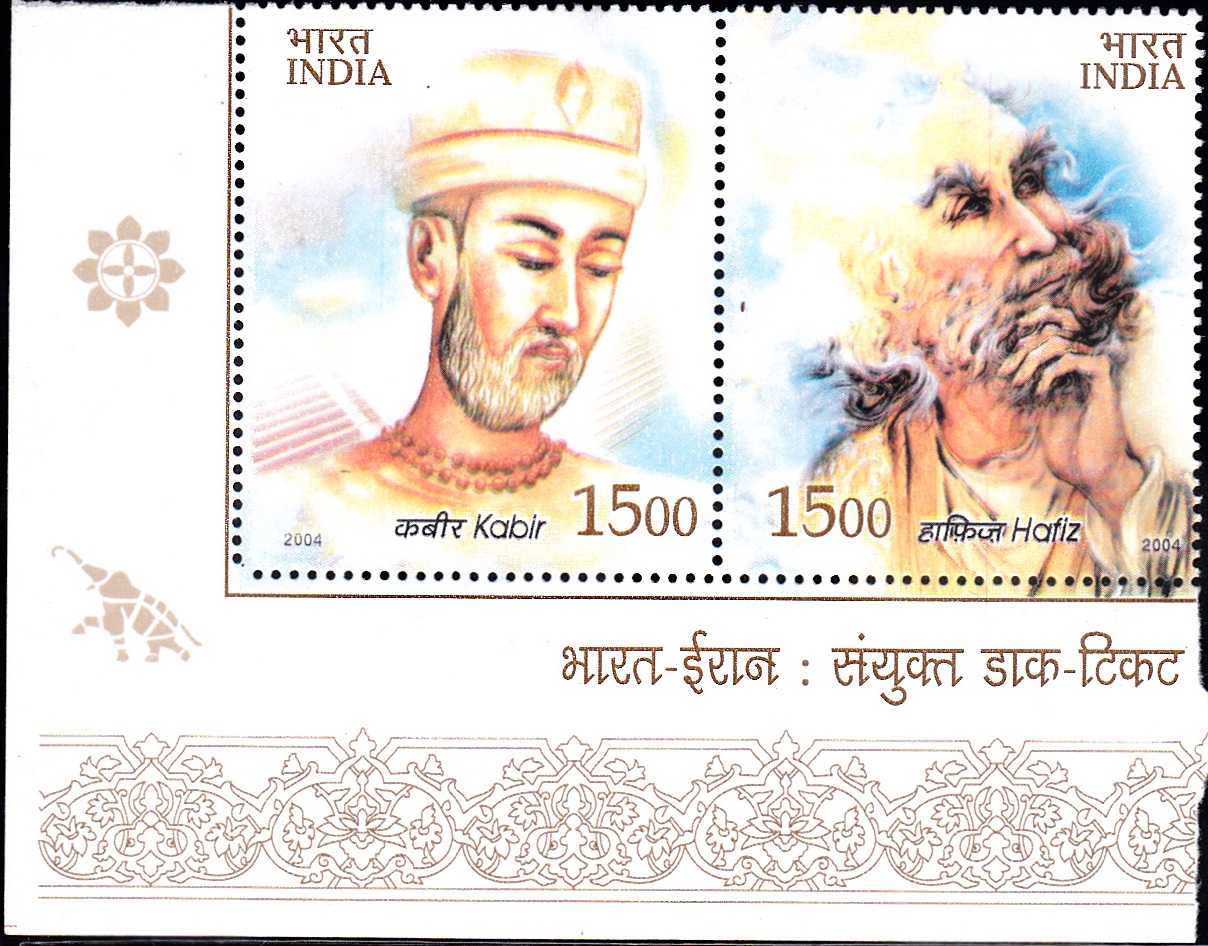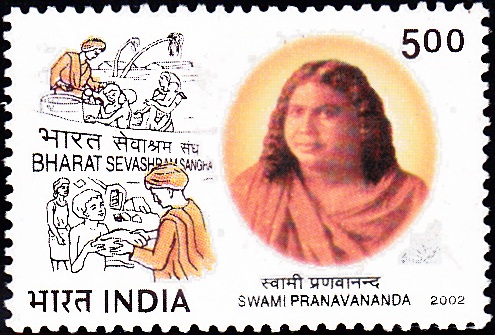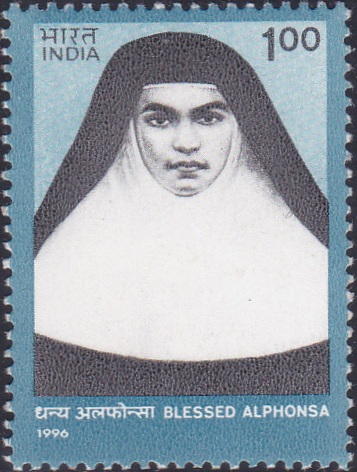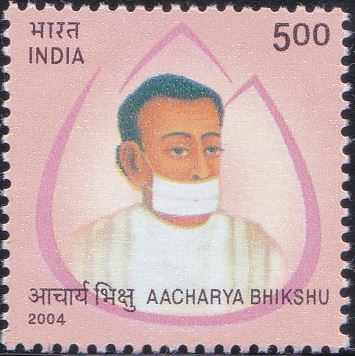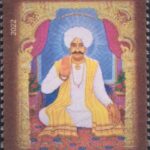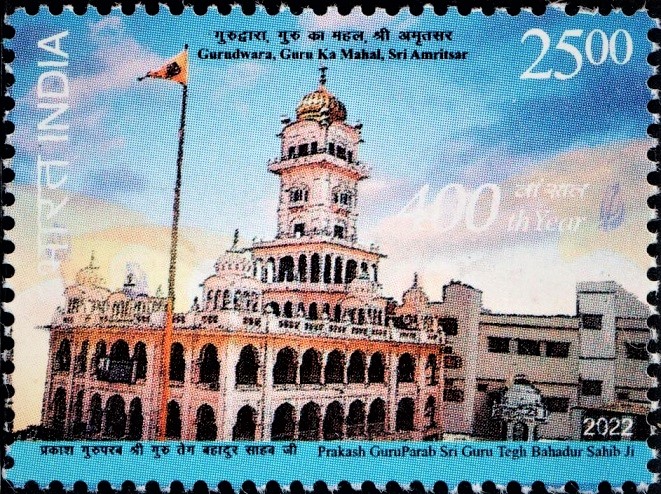
Gurudwara, Guru Ka Mahal, Sri Amritsar
A commemorative postage stamp on the 400th Prakash GuruParab of Sri Guru Tegh Bahadur Ji, 9th Guru of Sikhism :
 Issued by India
Issued by India
Issued on Apr 21, 2022
Issued for : It is a matter of pride for Department of Posts to issue a Commemorative Postage Stamp on “Sri Guru Tegh Bahadur Ji to Commemorate his 400th Birth Anniversary”.
Credits :
Stamp/FDC/Brochure : Sh. Suresh Kumar
Cancellation Cachet : Smt. Nenu Gupta
Type : Stamp, Mint Condition
Colour : Multi Colour
Denomination : 2500 Paise
Stamps Printed : 504000
Printing Process : Wet Offset
Printer : Security Printing Press, Hyderabad
Name : Tyag Mal
Born on Apr 1, 1621 at Amritsar, Punjab, India
Died on Nov 11, 1675 at Delhi, India
About :
- Government of India has announced commemoration of 400th Prakash GuruParab of Sri Guru Tegh Bahadur Ji (1621-2021) on national and international level in befitting manner. Government of India has constituted High Level Committee under the chairmanship of Hon’ble Prime Minister to approve policies, programs and supervise and guide the commemoration vide Gazette notification issued on 24th October 2020. The present composition of the High Level Committee has been notified on 27th December 2021. A variety of programs and activities have been organized in different parts of the country under the above commemoration. The commemoration is to close on 21st April 2022. It is proposed to organize variety of cultural programs on 20th and 21st April 2022 at Red Fort under the closing ceremony.
- Sri Guru Tegh Bahadur Ji (1621-1675) was the ninth Sikh Guru. Guru ji was the grandson of first Sikh martyr Guru Arjan Devji and son of Guru Hargobind Ji (Sixth Guru and founder of Sri Akal Takht and grandfather of Guru Gobind Singh Ji). Considered as a principled and fearless warrior, Guru ji was a learned spiritual scholar and a poet whose 116 hymns are included in Sri Guru Granth Sahib, the main text of Sikhism. Guru Tegh Bahadur was executed on the orders of Aurangzeb, sixth Mughal emperor, in Delhi, India. Sikh holy premises Gurudwara Sis Ganj Sahib and Gurudwara Rakab Ganj Sahib in Delhi mark the places of execution and cremation of Guru Tegh Bahadur. His martyrdom is remembered as the Shaheedi Divas of Guru Tegh Bahadur every year on 24th November, according to the Nanakshahi calendar released by the Shiromani Gurdwara Parbandhak Committee in 2003.
- Guru ji was given Guru Gaddi by Guru Harikrishan Ji. Guru Tegh Bahadur Ji was brought up in Sikh culture and trained in archery and horsemanship. Guru ji was also taught the classic spiritual texts like Vedas, Upanishads, Puranas and proficiency of Indian classic musicology. Guru ji preferred prolonged spells of seclusion and contemplation. Guru Ji’s valour shown in a battle against Mughals, gave him the name as Tegh Bahadur (Might of the Sword).
- In 1664 Guru ji was declared as the ninth Guru of Sikhs. Guru Tegh Bahadur travelled extensively across India. Guru Ji founded the city of Anandpur Sahib in the foothills of Himalayas. Guru Tegh Bahadur Ji made extensive travels in Shivalik Hills, South Punjab, Haryana, Bihar, Bengal, Uttar Pradesh and Assam. Guru Ji was executed in November 1675 in Delhi by the order of Mughal Emperor Aurangzeb, for taking up the cause of religious freedom of Kashmiri Pandits. Guru Tegh Bahadur was kept in jail for four months in Sarhind and then transferred to Delhi in November 1675. Guru Ji was asked to perform miracle to prove his nearness to the God. Guru Ji questioned the idea, stating that “occult powers were not a proof of one’s proximity to the God”. After his refusal to demonstrate a miracle, Guru Ji was asked to convert to Islam but Guru Ji refused. Three of his associates who were arrested with Guru Ji were put to death in front of him. Then after his refusal to convert to Islam, Guru Ji was beheaded in Chandni Chowk, Delhi. Gurudwara Sis Ganj and Gurudwara Rakab Ganj in Delhi, two historical sites are associated with the sacred memory and supreme sacrifice of Guru Ji.
- This is an opportunity for all of us to offer a great tribute to Guru Ji and devote our professional & institutional resources and our energy towards providing a fresh perspective on the role of Guru Ji in serving the mankind. Guru Tegh Bahadur Ji spent many years in Eastern part of India and visited all major places in today’s UP, Bihar, Bengal, Assam. Guru Ji made supreme sacrifice of his life while pleading for the cause of Kashmiri Pandits. His memory and legacy serve as a great uniting force in the idea of India.
- The sacred compositions of Guru Tegh Bahadur Ji are a great reflection on the idea of devotion and purpose of human life. Guru Tegh Bahadur Ji was the only Sikh Guru who composed his Bani in Raga Jayjawanti. Guru Tegh Bahadur Ji is remembered as a Guru who stood for religious freedom and solidarity of the country. Guru Ji would always be remembered for his bravery and concern for social harmony.
- Text : Referenced from the contents furnished by Ministry of Culture.
Subscribe
Login
0 Comments



